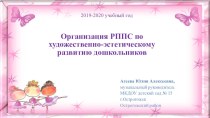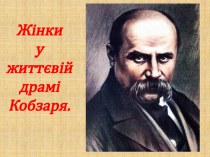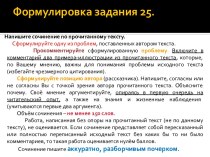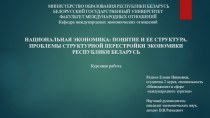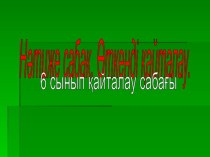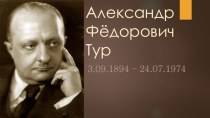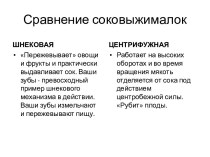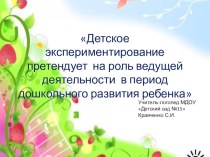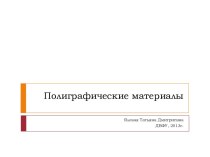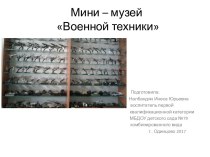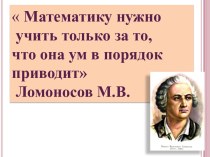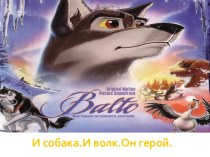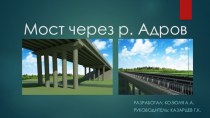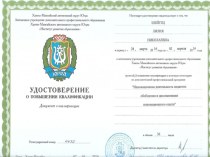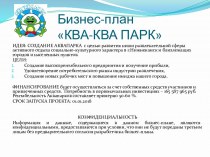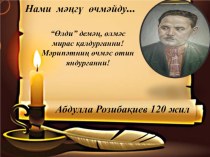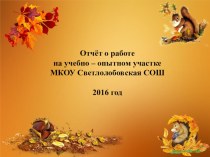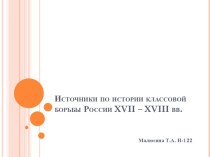- Главная
- Разное
- Бизнес и предпринимательство
- Образование
- Развлечения
- Государство
- Спорт
- Графика
- Культурология
- Еда и кулинария
- Лингвистика
- Религиоведение
- Черчение
- Физкультура
- ИЗО
- Психология
- Социология
- Английский язык
- Астрономия
- Алгебра
- Биология
- География
- Геометрия
- Детские презентации
- Информатика
- История
- Литература
- Маркетинг
- Математика
- Медицина
- Менеджмент
- Музыка
- МХК
- Немецкий язык
- ОБЖ
- Обществознание
- Окружающий мир
- Педагогика
- Русский язык
- Технология
- Физика
- Философия
- Химия
- Шаблоны, картинки для презентаций
- Экология
- Экономика
- Юриспруденция
Что такое findslide.org?
FindSlide.org - это сайт презентаций, докладов, шаблонов в формате PowerPoint.
Обратная связь
Email: Нажмите что бы посмотреть
Презентация на тему Francisco Masseria and his Girls
Содержание
- 2. The artist Francisco, F. J. J. C.
- 3. Although none of his family were artists,
- 4. His first achievement came at the age
- 5. “I never believed in fads in art,”
- 6. At first glance, Masseria’s paintings appear to
- 7. “In my paintings, there is a painterly
- 8. Francisco J.J. C Masseria’s art derives from
- 9. In the faces of his portraits Masseria
- 10. There is a virtuoso quality to Masseria’s
- 11. Masseria, like the abstractionists Soutine and de
- 12. Masseria’s art forms a bridge between romantic-naturalism
- 13. Francisco traveled across the continents of the
- 14. His work today can be found amount
- 15. Thank you for visiting the Gallery!
- 16. Скачать презентацию
- 17. Похожие презентации
The artist Francisco, F. J. J. C. Masseria was born on April 7th, 1926 in Parana, capital of Province of Entre Rios, Argentina. Masseria’s parents were Italian.
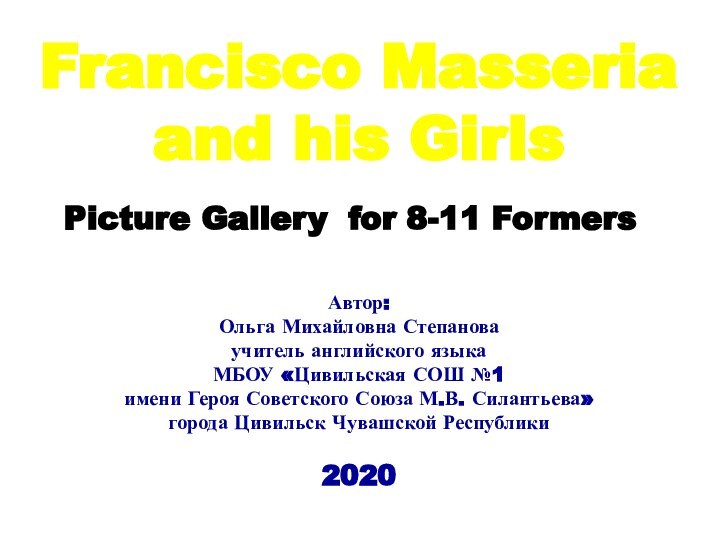
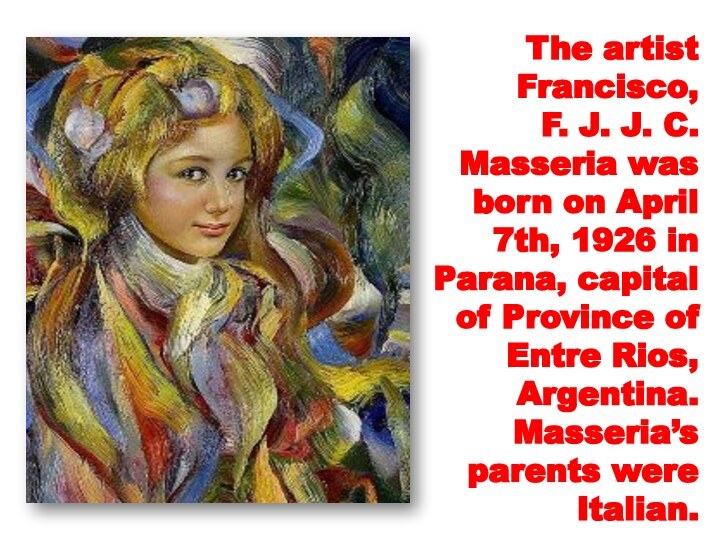
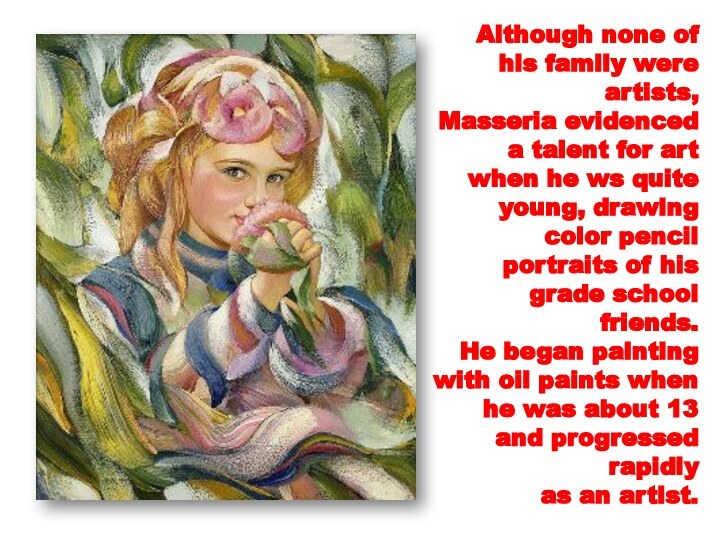
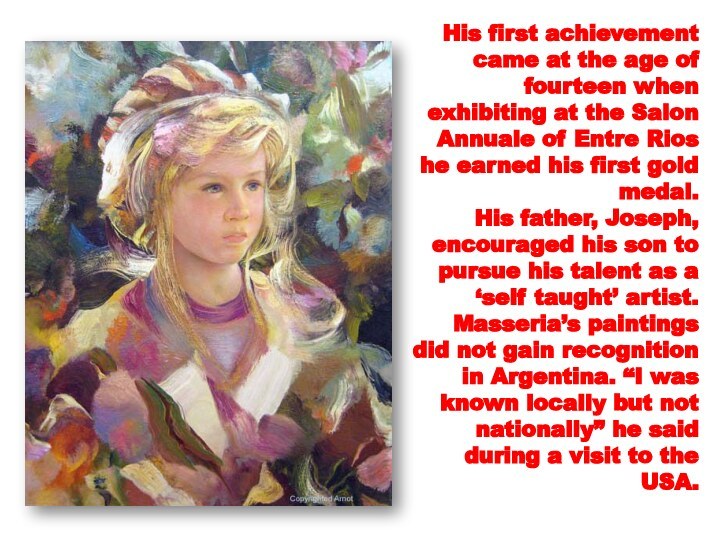
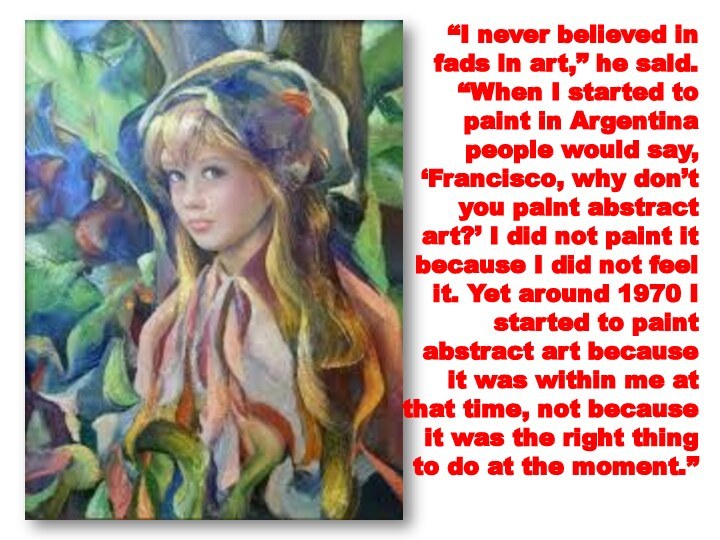
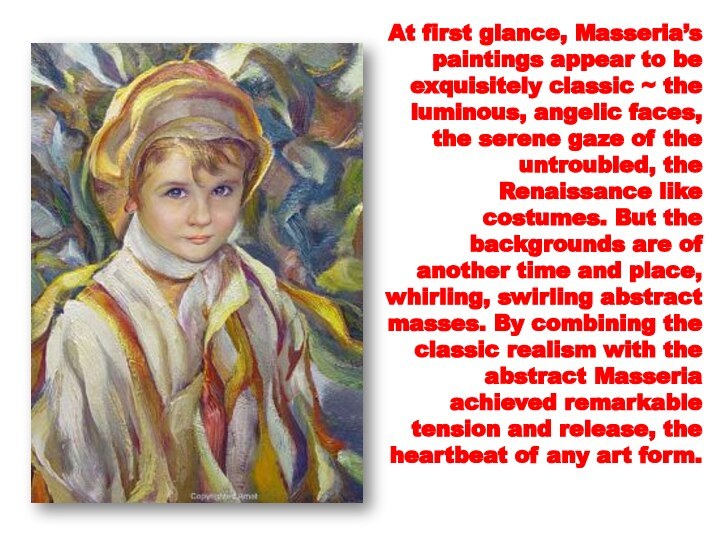

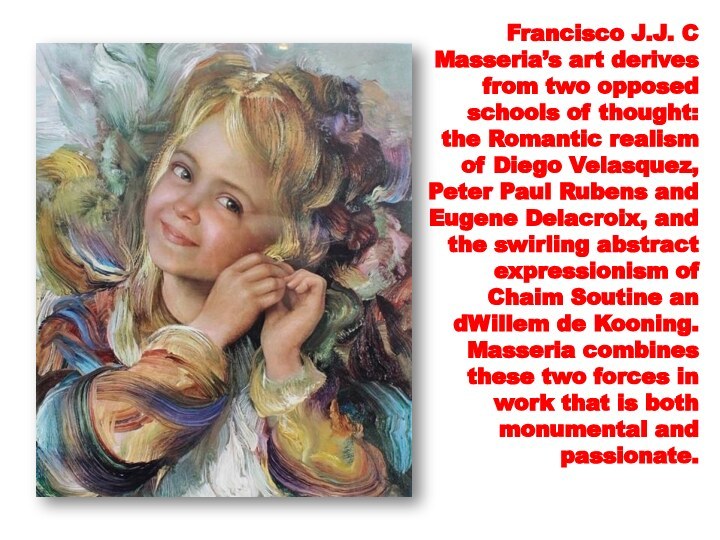
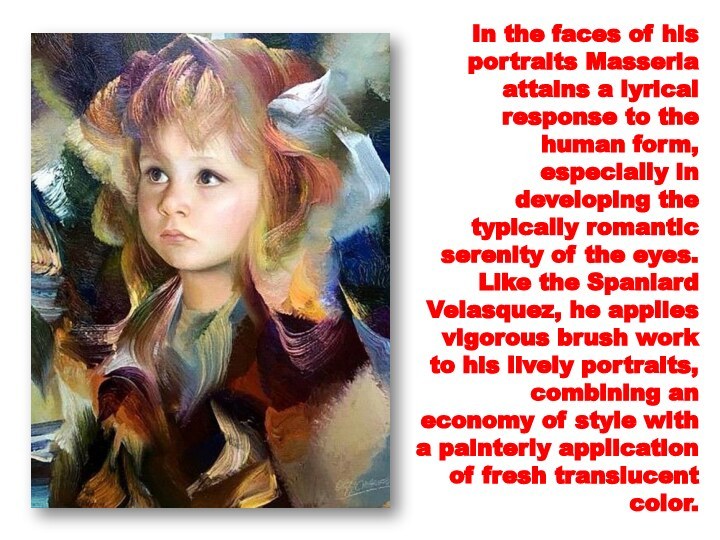
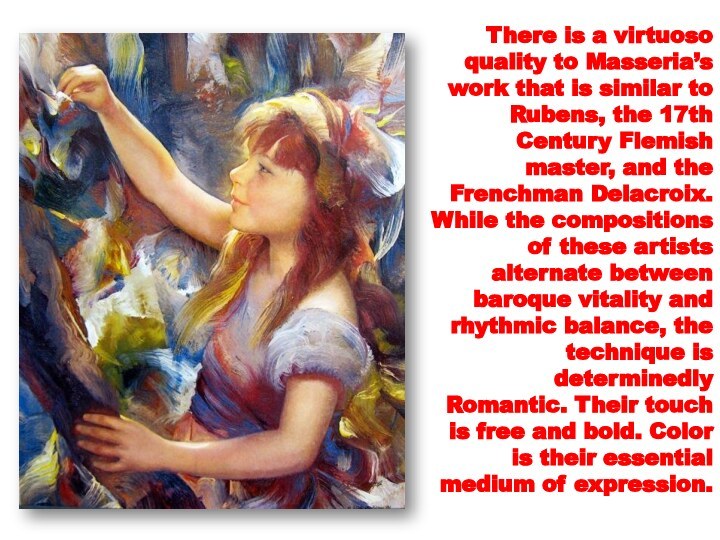
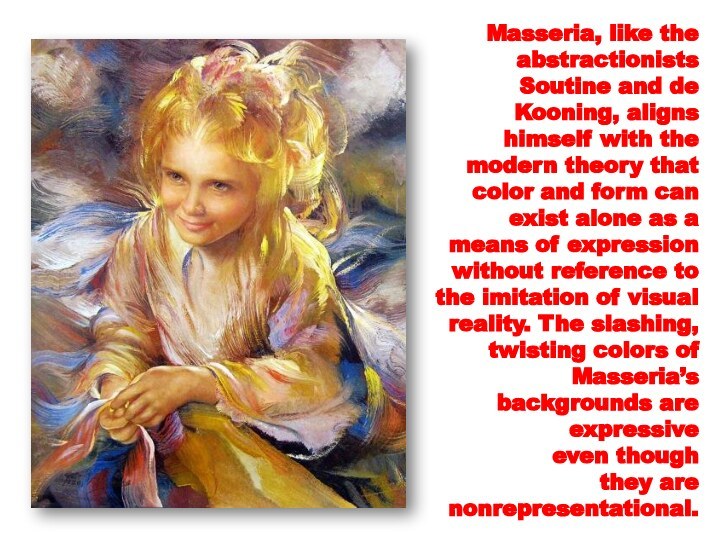
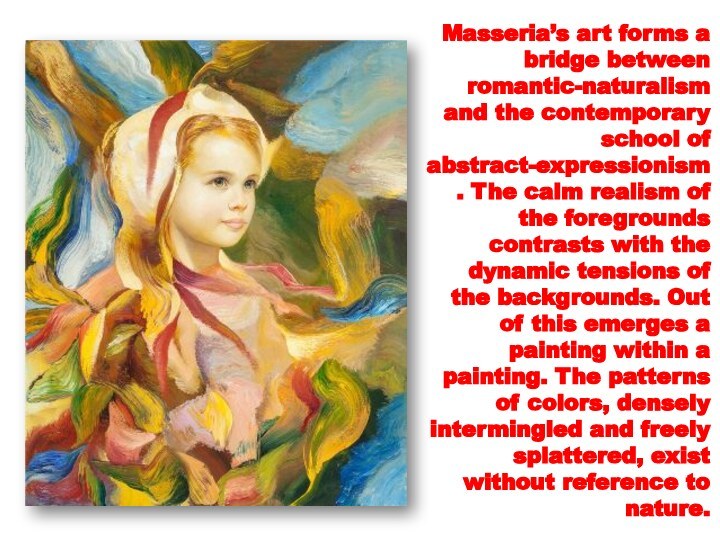
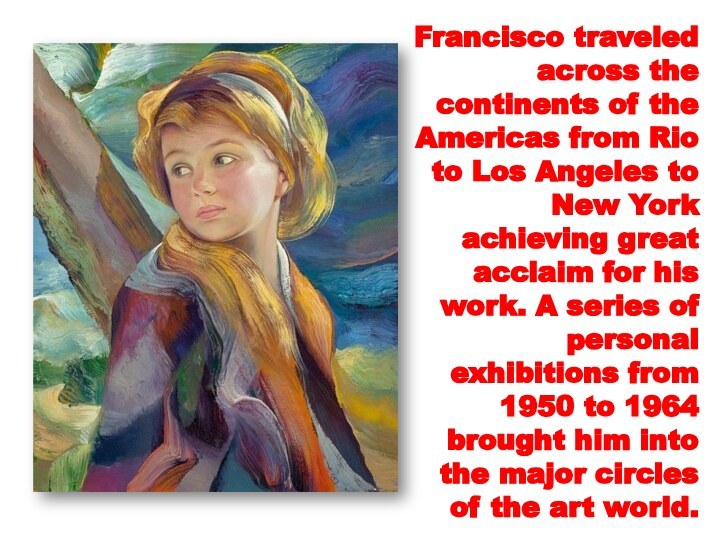
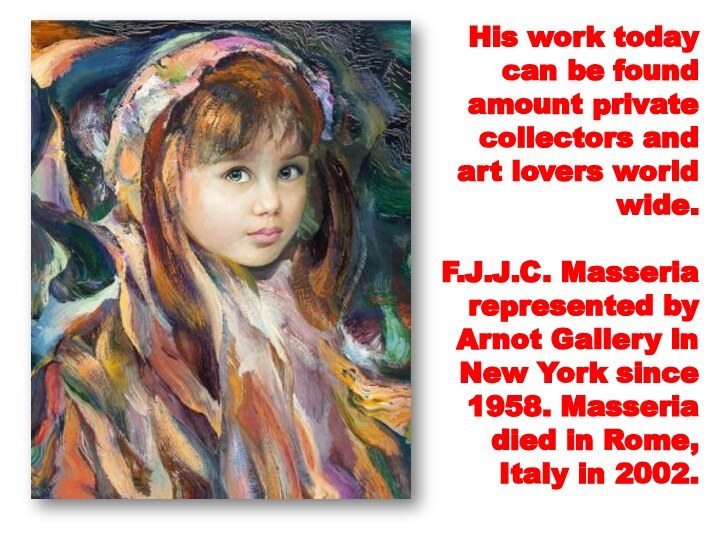
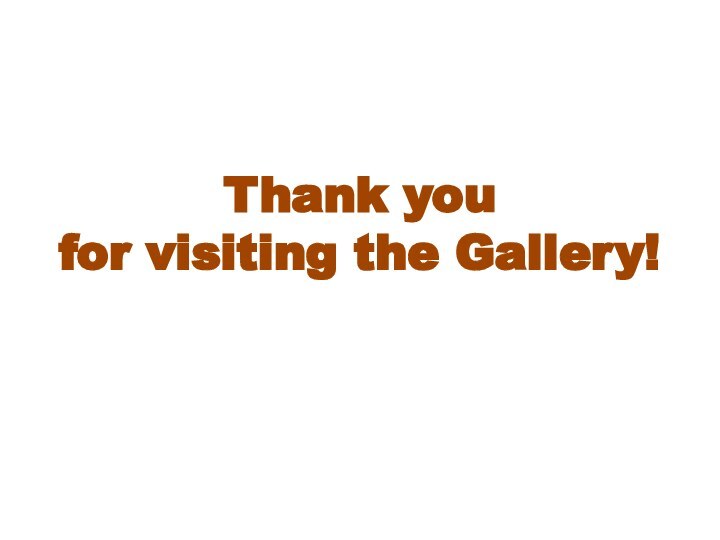
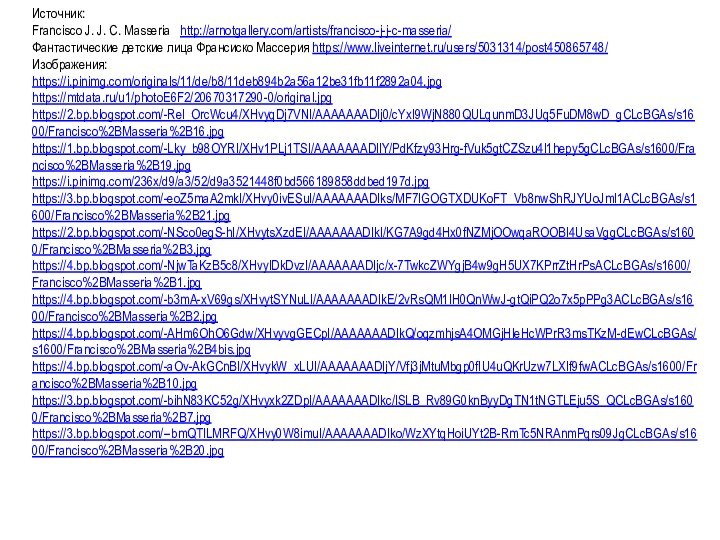
Слайд 3
Although none of his family were artists,
Masseria
evidenced a talent for art when he ws quite
young, drawing color pencil portraits of his grade school friends.He began painting with oil paints when he was about 13 and progressed rapidly
as an artist.
Слайд 4 His first achievement came at the age of
fourteen when exhibiting at the Salon Annuale of Entre
Rios he earned his first gold medal.His father, Joseph, encouraged his son to pursue his talent as a ‘self taught’ artist. Masseria’s paintings did not gain recognition in Argentina. “I was known locally but not nationally” he said during a visit to the USA.
Слайд 5 “I never believed in fads in art,” he
said. “When I started to paint in Argentina people
would say, ‘Francisco, why don’t you paint abstract art?’ I did not paint it because I did not feel it. Yet around 1970 I started to paint abstract art because it was within me at that time, not because it was the right thing to do at the moment.”Слайд 6 At first glance, Masseria’s paintings appear to be
exquisitely classic ~ the luminous, angelic faces, the serene
gaze of the untroubled, the Renaissance like costumes. But the backgrounds are of another time and place, whirling, swirling abstract masses. By combining the classic realism with the abstract Masseria achieved remarkable tension and release, the heartbeat of any art form.Слайд 7 “In my paintings, there is a painterly discourse
in the backgrounds,” he pointed out. “They are not
just haphazard. They have a meaning, a significance, and they stand on their own. I like to think that my painting leaves a little mystery and leads the viewer to discover new nuances in my work.”Слайд 8 Francisco J.J. C Masseria’s art derives from two
opposed schools of thought: the Romantic realism of Diego
Velasquez, Peter Paul Rubens and Eugene Delacroix, and the swirling abstract expressionism of Chaim Soutine an dWillem de Kooning. Masseria combines these two forces in work that is both monumental and passionate.Слайд 9 In the faces of his portraits Masseria attains
a lyrical response to the human form, especially in
developing the typically romantic serenity of the eyes. Like the Spaniard Velasquez, he applies vigorous brush work to his lively portraits, combining an economy of style with a painterly application of fresh translucent color.Слайд 10 There is a virtuoso quality to Masseria’s work
that is similar to Rubens, the 17th Century Flemish
master, and the Frenchman Delacroix. While the compositions of these artists alternate between baroque vitality and rhythmic balance, the technique is determinedly Romantic. Their touch is free and bold. Color is their essential medium of expression.Слайд 11 Masseria, like the abstractionists Soutine and de Kooning,
aligns himself with the modern theory that color and
form can exist alone as a means of expression without reference to the imitation of visual reality. The slashing, twisting colors of Masseria’s backgrounds are expressiveeven though
they are nonrepresentational.
